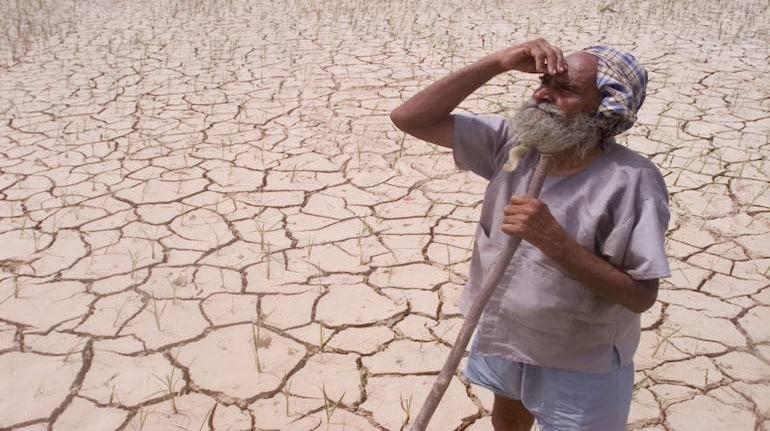



In about two weeks, the Indian Meteorological Department (IMD) will come out with the first official monsoon or summer rains forecast for this year.
A private weather forecaster has predicted that monsoon is likely to be below normal this year.
The probability of a brewing El Nino, a weather glitch marked by higher-than-normal Pacific temperatures, during the second half of 2017 could set off a dry spell in India.
Administrations do not have control over weather shocks.
That said, aided by rapid technological advancements, the Indian Meteorological Department and weather scientists can now predict rain and other impending weather patterns fairly accurately.
This offers governments the opportunity to prepare early, rather than deal with a weather surprise in a knee-jerk manner.
A below-normal monsoon could bring back the spectre of high food prices, dry out reservoirs, cut-down on hydro-power generation, and worsen power supplies affecting operations across factories.
Here are 5 things India can do much in advance to deal with a mid-summer nightmare:
Widen NREGA
Late monsoon arrival can force millions of farmers to defer summer sowing of major staples, such as rice, sugar, cotton, coarse cereals. This could affect labourers who live off farms engaged in land tilling, ploughing and seed sowing.
Early warnings about scanty summer rains allows the government to intensify NREGA projects in the districts that face the worst prospects of a dry spell. This will allow labourers, affected by delayed sowing, to earn minimum wages from non-farm activities.
Risk: Greater-than-budgeted government spending could widen the fiscal deficit.
Cut Food Import Costs
Weak rains can affect food supplies and stoke inflation. Food prices, like any other commodity, are determined by demand and supply.
In drought years, the government has imported essential food staples to shore up domestic supplies and keep local prices down.
Overseas food shipments’ landed cost can come down if import duties are cut now, instead of waiting for July-August. An early cut in import duties on food can help keep inflation from spiralling if monsoon fails.
Risk: Lowering import duties now could allow unregulated wholesalers to hoard food and push up prices later.
Run Water Trains
On Sunday, Uttar Pradesh Chief Minister Yogi Aditya Nath approved a Rs 47-crore package to immediately raise drinking water supplies in drought-hit Bundelkhand region.
Last year, the Indian Railways operated frequent 'water trains,'— trains loaded with tanks of water to deal with drought in parts of Maharashtra.
Indian Railways ran the trains-each carrying more than half a million litres of water–to parched Latur from Miraj covering a distance of 343 kilometers away, allowing the local administration ration water as natural reservoirs dried up.
Indian Railways, in consultation with state governments, can announce an early schedule of similar water trains for districts that face the worst dry spell based on early Met forecasts.
Risk: Local district administration may be adequately equipped to deal with transported water, leading to wastage and creation of a vested water mafia.
Place Import Orders Now
The unusually high temperatures and sweltering heat across north and west India over the last 10 days can potentially damage wheat through premature ripening of the crop that is due for harvest in the next few weeks.
A reduced winter wheat harvest in India, coupled with effects of El Nino ripple around the world can likely push global commodity prices.
El Nino conditions can set off milder winters in northern US but a stormier south as well as heavier rains in Brazil and dry spells in India. Such widespread effects can roil agricultural markets across continents.
It may be prudent to import food items now when world commodity prices are in a soft range, rather than wait until July-August when global prices can start rising.
Risk: Government-canalised food import can result in wastage in Food Corporation of India (FCI) warehouses due to capacity shortage
Shore Up Coal Supplies
Four years ago, 680 million people were plunged into darkness for three days following a power grid failure. Delayed monsoon rains had dried out reservoirs prompting hydro stations to cut down energy generation. Several power stations India had just a few days of coal left to keep their furnaces burning to wheel out electricity.
To avoid a repeat, the government can examine the option of taking back the coal blocks from those power companies who have not yet started producing power from captive coal blocks.
Inadequate coal supplies from Coal India Limited (CIL) can be partially bridged through imported coal. The government may examine policies for imported coal now, instead of later can overseas coal prices may shoot up.
Risk: Imported coal by private power producers now can distort local coal auction prices.
Discover the latest Business News, Sensex, and Nifty updates. Obtain Personal Finance insights, tax queries, and expert opinions on Moneycontrol or download the Moneycontrol App to stay updated!